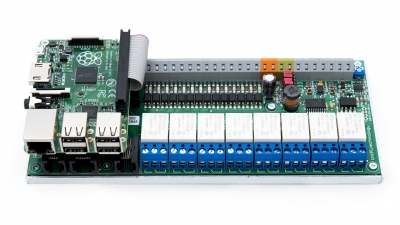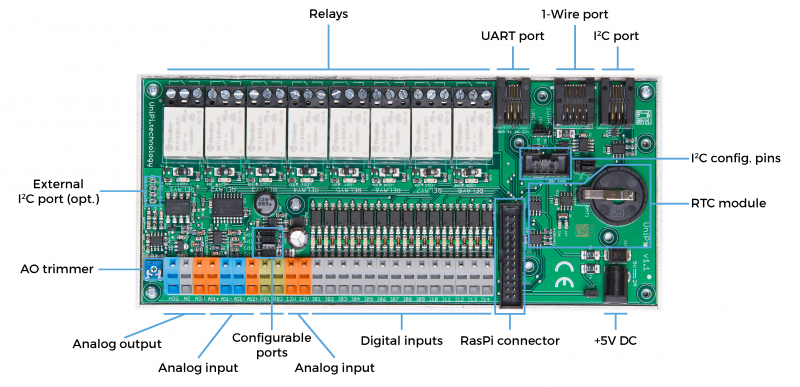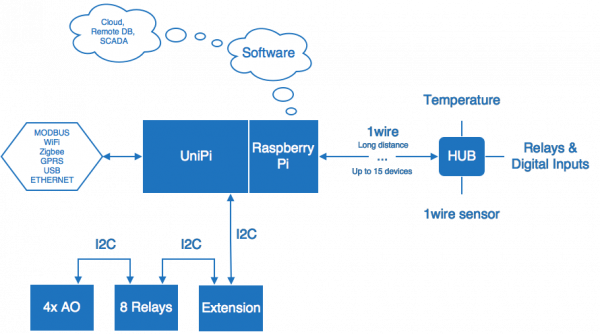This is an old revision of the document!
UniPi 1.1 & 1.1 Lite
UniPi 1.1 is an extension board for Raspberry Pi. The board allows the Raspberry Pi to function as a programmable logic controller (PLC) in a variety of automation applications.
User manual
Overview
Raspberry Pi Model 3B computer is used as CPU. The computer is connected via its GPIO through ribbon cable, processes all data from I/O modules and is sending responses. All individual I/Os and communication interfaces are connected to the Raspberry Pi's CPU either directly via GPIO or indirectly via I2C. Raspberry Pi also provides network connectivity and USB ports.
The UniPi 1.1 feature following inputs & outputs
- 8x Finder 36.11.9.005.4011 changeover relays (rated for 250V AC/5A or 24V DC/5A)
- 12x galvanically isolated digital inputs (5-24V DC voltage, 5 ms minimum pulse lenght)
- 2x 0-10V analog inputs
- 1x 0-10V analog output
- 1 × 1-Wire port for connection to 1-Wire thermometers and other sensors
- 1 × I2C port for expansion
- 1 × UART port for external serial communications
- socket for RTC (real-time clock) battery
The I2C port supports connection of extension modules, such as the EMO-R8 relay extension.
The 1-Wire bus is used for passive reading of data from corresponding 1-Wire sensors (humidity sensors, temperature sensors etc.). One bus can receive data from up to 15 sensors at once (provided a suitable 1-Wire hub is used).
Note: UniPi 1.1 requires an external 5V 2.5A power source with 2.1mm DC jack.


